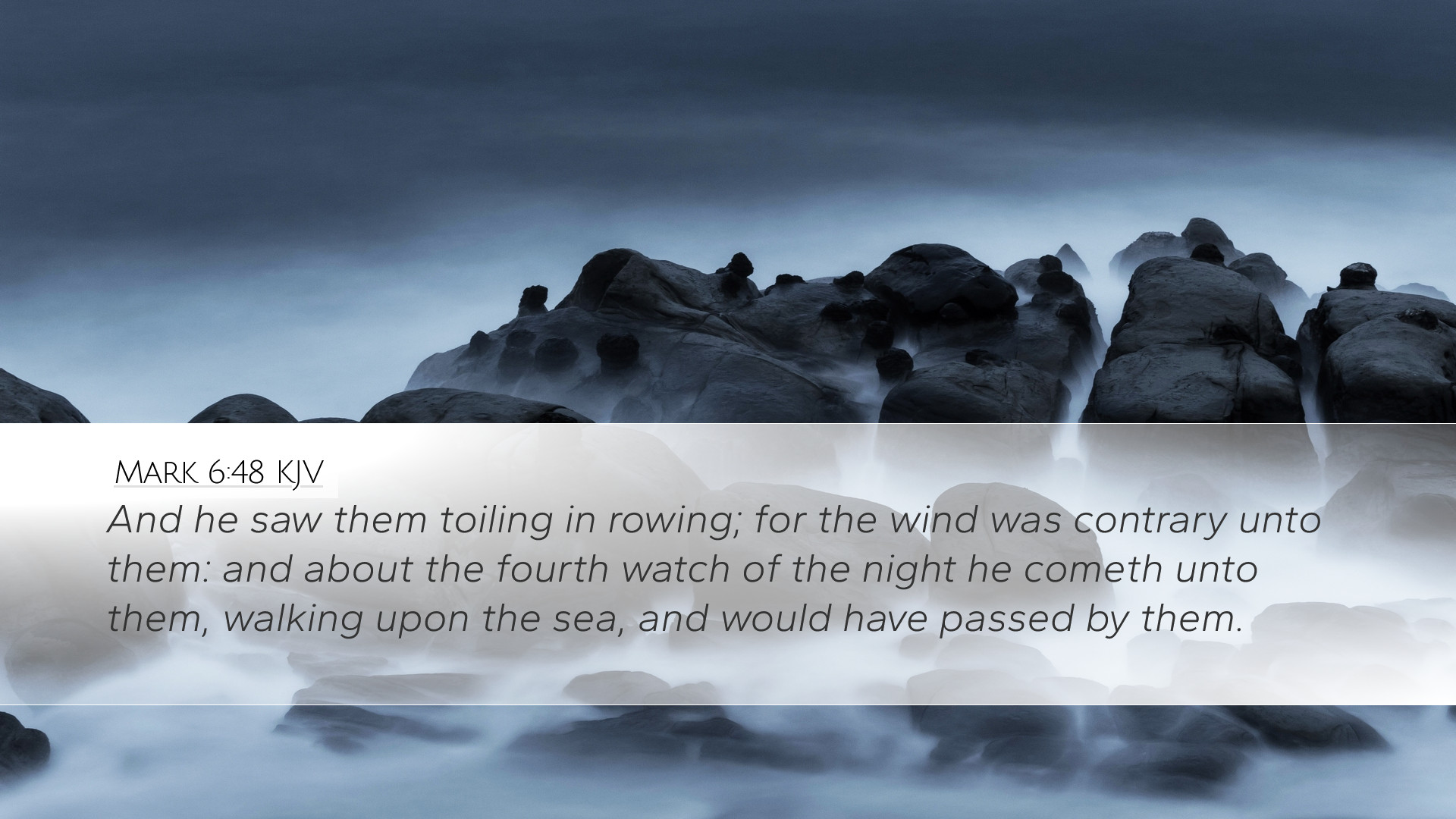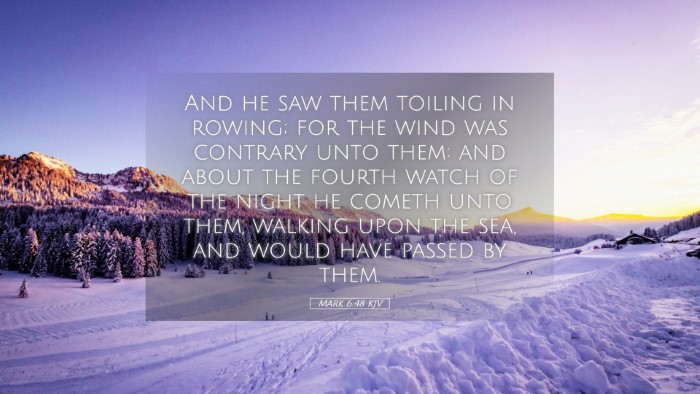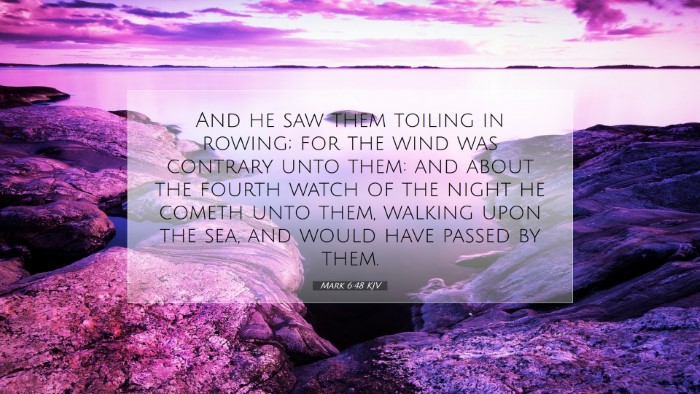Commentary on Mark 6:48
Verse: Mark 6:48 - "And he saw that they were making headway painfully, for the wind was against them. And about the fourth watch of the night he came to them, walking on the sea. He meant to pass by them."
Introduction
The narrative surrounding Mark 6:48 is rich with theological and practical implications. This verse captures a pivotal moment when Jesus interacts with His disciples during a tumultuous time at sea. The insights from various public domain commentaries such as Matthew Henry, Albert Barnes, and Adam Clarke provide depth in understanding the text. Here, we explore the multifaceted layers of meaning behind the events described in this powerful verse.
Contextual Background
This event occurs shortly after the miraculous feeding of the 5,000, which is critical to understanding the disciples' next challenge. The context of the sea represents both physical and spiritual turmoil as the disciples encounter strong opposition in the form of the wind, which symbolizes life's adversities.
Matthew Henry's Commentary
Peril and Divine Observation: Henry emphasizes the disciples’ struggle against the wind, indicating the Lord's observance of their labor. He notes, "He saw them toiling in rowing" (Mark 6:48a). This insight asserts that God is attentive to our struggles and trials, even when He appears distant.
Christ’s Timing: The reference to the "fourth watch" (around 3 AM to 6 AM) signifies that Christ comes at a time when it seems most desperate. Henry points out, "He came to them just when they were in the greatest distress." This provides comfort in the belief that though we may face dark moments, Christ arrives in our time of need.
Albert Barnes' Exegesis
Discouragement and Determination: Barnes elaborates on the difficulty the disciples faced. "The wind was contrary," he notes, which implies their situation reflected discouragement. The struggle against the wind provides a metaphor for Christians facing opposition in their spiritual journey.
Walking on the Sea: Barnes highlights the miraculous nature of Jesus walking on water, indicating His mastery over creation. This act serves as a demonstration of divine authority and incites wonder among the disciples, reinforcing the concept that Jesus achieves what is humanly impossible.
Adam Clarke's Analysis
Spiritual Implications: Clarke views the disciples' ordeal as a representation of spiritual challenges faced by believers. Their 'painful headway' mirrors the struggles of faith, which often meet resistance from worldly influences. "They are in distress, yet they are also in the will of God," he writes.
Intended Revelation: Clarke states that Jesus "meant to pass by them" not to ignore them but to manifest His divinity. His intention was to reveal His power and to strengthen their faith. Clarke suggests that sometimes, God’s actions may seem to 'pass us by' but are often designed to draw us closer to Himself.
Theological Implications
The myriad of interpretations reflected in these commentaries reveals a profound theological message: God watches over His people and intervenes during their trials. The verse emphasizes themes such as divine presence, human struggle, and the supernatural intervention of Christ.
- Divine Presence: The sight of Jesus amidst the storm is a reminder of His continual presence in our lives.
- Human Struggle: Believers often fight against spiritual and physical 'winds' that threaten to overcome them.
- Supernatural Insight: Christ walking on the sea represents the intersection of the divine and human experiences, providing hope amid despair.
Practical Applications
This passage encourages pastors and believers alike to find solace in Jesus’ awareness of our struggles. Some practical applications include:
- Comfort in Distress: Remembering that Jesus sees our struggles can provide peace and assurance during tough times.
- Faith in Action: The disciples' obedience in rowing despite the storm serves as a powerful lesson on perseverance in faith.
- Recognizing Jesus' Presence: Believers should learn to recognize Christ in the midst of challenges, understanding that He comes to those who genuinely seek Him.
Conclusion
In summary, Mark 6:48 is a rich passage that reveals profound truths about Christ's omniscience and His active involvement in the lives of His followers. The insights provided by Matthew Henry, Albert Barnes, and Adam Clarke collectively enhance our understanding of this pivotal moment. For pastors, students, and theologians, this character study of Jesus is not only an encouragement but also a profound invitation to deepen one's faith and trust in His providence.


